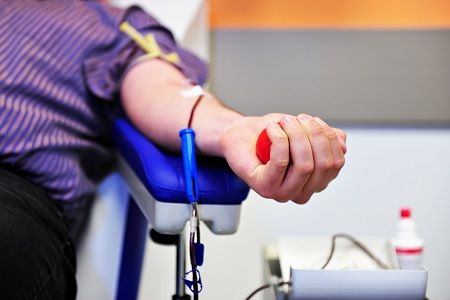Article
Actually, Gay Men May Not Be Allowed to Donate Blood After All
Author(s):
in December 2015, the US Food and Drug Administration (FDA) changed a 30-year blood donation policy – but now, it may go back.

In December 2015, the US Food and Drug Administration (FDA) changed a 30-year policy stating that men who have sex with men could not donate blood regardless of when their last sexual interaction was. The update allowed men to donate if they had not had sex with another man within a year — but now, that too could be taken away.
The aim of the blood donation guidance is to reduce the risk for human immunodeficiency virus (HIV) transmission. The FDA has officially opened the opportunity to comment on the matter, asking for scientific support, in order to establish a public docket.
- Related: Gay Men Are Willing to Take HIV Self-Testing Kits from Grindr
The first blood donation regulations for this population were implemented in 1985 after thousands of people who had blood transfusions were infected with the human immunodeficiency virus (HIV). Therefore, any man who had sex with another man even once since 1977 was deferred from donating. It’s no secret that gay and bisexual men are at a higher risk to be HIV-positive; however, as you would imagine, many find the policy discriminatory. But in the 2015 guidance change, the FDA specified that blood donor deferral policies can change as more evidence becomes available.
“FDA recognizes that many stakeholders have expressed the desire to move from a timebased deferral period to a deferral policy based on individual risk assessment,” the statement read. “An individual risk assessment would involve asking potential donors a series of questions designed to defer donors with high risk behaviors.” Therefore, officials are asking for people to comment, with scientific data to back their thoughts, on what kinds of questions such an assessment would contain.
There is no timeframe for when/if this policy change were to occur.
Also on MD Magazine >>> HIV Test Kits Can Take the Heat, Study Finds





